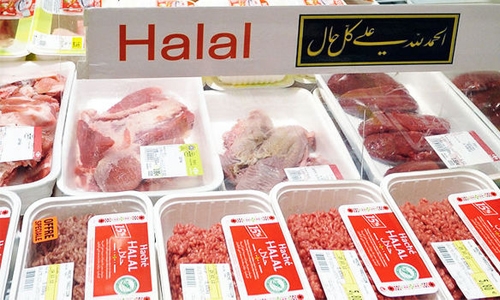Halal Supply Chain misinterpreted by industry players
Halal products have been widely distributed throughout the world. The demand for halal products does not only come from Muslim countries but also from the non-Muslim countries. We know that halal is applicable not only to Muslim people but also to the others. Therefore, it emphasises the need for the discussion of halal supply chain. It is not supposed to be stopped at discussion, it should be continued through events and most importantly the implementations.
Halal supply chain concept should have been introduced not only to the food sector, but also other sectors such as cosmetics, pharmaceuticals, financial services, even tourism and other customer leisure products. In the food industry, halal production becomes the focal point since the processes include ingredients, cleanliness, and food mixing. Food mixing also relates to storage and distribution processes, meat slaughtering and poultry. The issue is the mixing process that does not comply with the Islamic principles.
Hence, consumers are exposed to the quality of the food perceiving risk or known as halalan toyyiban. It means the foods and services are not only halal but also in good condition to be consumed. Halalan toyyiban also encompasses cleanliness, quality, logistics and safety. However, halal supply chain has been misinterpreted and misunderstood by industry players. They consider it as an extra cost, which affects the price of a product. The increase in price would not be attractive to consumers.
The concept of halal, apparently, has not been embedded in the production process, not to mention that the underlying and philosophical background of halal supply chain have not been understood thoroughly. Thus, the concept should have been informed and exposed to the society. Halal supply chain management integrates production processes from the original suppliers providing added value of products and services to end-user of customers that comply with sharia principles. The processes include gathering the source, managing the inventory, and warehousing.
Through meticulous periodical controlling and evaluating process, halal supply chain can improve the performance of a firm. Halal market is not only about its production but also it reaches a lifestyle. For a high-end market, it can reach organic, ethnic, environment, natural, and animal welfare where the consumers aware of ethical, fashion, and new ‘green’ lifestyle. On the other hand, in the mainstream market where diverse application, full range of product, supermarket and global presence aware of Hazard Analysis Critical Control Point (HACCP) and professional trace and track record of secure supply chain. As we can predict, the current market is not dealt with traditional way of transaction.
Millennium era has spread its influence throughout the world that nowadays people can only sit in their room with a food coming from 10 miles away delivered via electronic order. Specific target market has already been established (both Muslims and non-Muslims), thus a producer should not be worried about the market. As per 2015, Muslim represented 24.1 per cent of population of the world or approximately 1.8 billion people in total. According to the Emirates Authority for Standardisation and Metrology (ESMA), the value of Halal market in the Muslim world is more than USD2.3 trillion.
One of the important Muslim countries to the development of Halal market is Kingdom of Bahrain. The Kingdom has been ranked in the top 3 of the State of the Global Islamic Economy Report, Thomson Reuters for several years. Government of Bahrain has put in efforts to create an investment and consumer friendly environment for the Halal industry. From the six Halal sectors available in the 2018 Thomson Reuters’ report, Bahrain is in the top 10 in Islamic finance, Halal pharmaceuticals and cosmetics, and Halal media sectors.
In Islamic finance, the kingdom’s ecosystem is second only to Malaysia, due to significant development in Islamic FinTech, notably with the launch of the FinTech Bay, a new partnership between Bahrain Islamic Bank (BISB) and Bahrain FinTech Bay, and the launch of the GCC’s first shariah-compliant digital bank. Investment platforms are equally being developed, often using blockchain, while venture capital firms and crowdfunding platforms are being utilised to raise capital. As a result of those efforts, Bahrain has emerged into a digital economy, where its performance is very impressive.
In addition, Islamic financial industry is expanded and deepened in Bahrain with more than 30pc market share. Bahrain has also risen in the rankings for pharmaceuticals and cosmetics sector, where it reached the ninth place in 2018 (previously it was not in the top 10 due its bigger role in exporting products to the OIC countries. In media sector, Bahrain has risen to the sixth place from the ninth place in 2017. In order to support the Halal tourism in the kingdom, Bahrain has announced several tourism projects available to private investors.
The largest of these planned projects is the development of a strip of resorts and residential properties in Bilaj al-Jazayer, on the southwest coast of the island. The above developments have made Bahrain a key player within the world’s halal supply chain.
Related Posts

